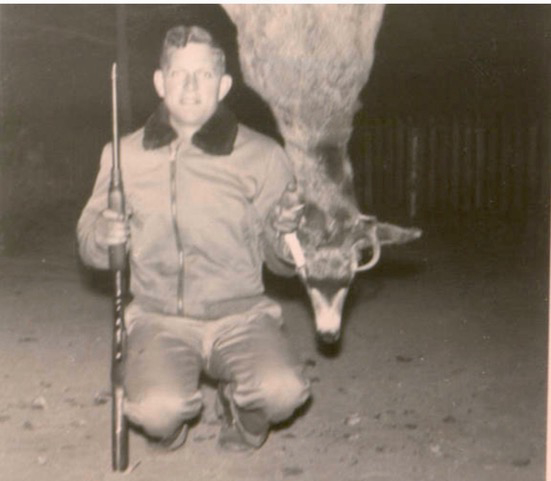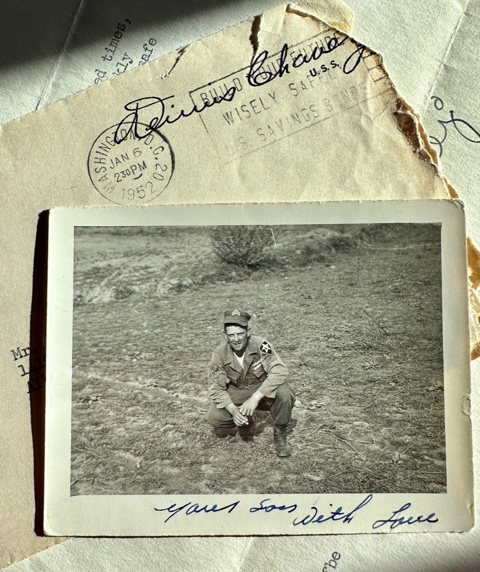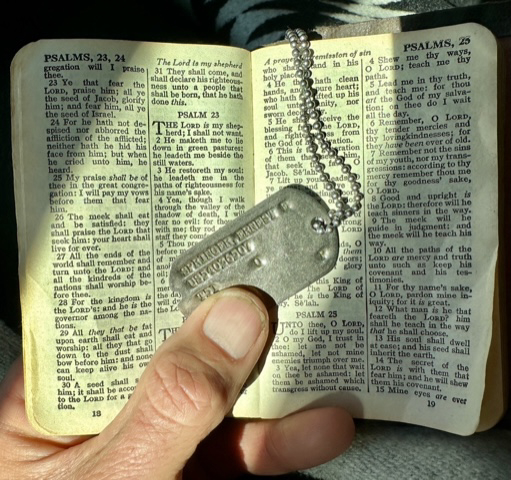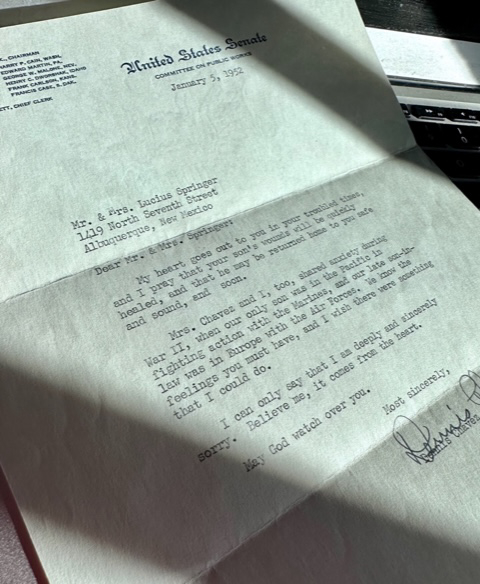A few years ago, I stepped out of the Dennis Chavez Federal Building in downtown Albuquerque where I worked. Outside in the cold wind around the corner from my office, ironworkers were hard at work. A labored clomp of mallet on metal filled the air. Like a sculptor shapes clay, these guys turned a tangle of iron and concrete into a downtown building.
An ironworker 10 years my junior worked near the street. He heaved heavy rebar onto his shoulder. His tool belt hung low on his waist from the weight of a spud wrench, his clothes flecked with welding burns. His hard hat sported the Ironworkers emblem. My heart swelled.
My dad made ironwork his career. Ernie Springer walked the I-beams of bridges and tall buildings in the making. As a youngster I couldn’t fully know how hard he worked, but I appreciate my dad now more than ever.
In summer he’d come home from work covered in dirt and no doubt tired. Still, he somehow had the energy to take me fishing for the evening bite. When the time was right, he bought me a Mossberg shotgun and introduced me to upland hunting. Dad made it a point that I know the outdoors life that he experienced growing up in northern New Mexico.
When Veterans Day comes around he is heavy in my heart. He died the day before Veterans Day in 2009, leaving me with many memories and a dearth of answers to questions I never got to ask.

In 1951, Dad traded in a .30-30 Winchester lever action deer rifle for a .30 caliber M1 Garand. He was on the front lines in the Korean War, a corporal in the U.S. Army’s famous 2nd Infantry Division. His unit made its way well inside North Korea. It was a meat-grinder, vicious and unspeakably violent, heightened by brutally cold weather. Frostbite was an enemy. Dad chose not to talk much about his wartime experiences.
But he couldn’t hide his limp. Each time he bought a new pair of work boots, the sole had to be stacked on his right foot to compensate for what happened in October, 1951. Enemy shrapnel earned him a Purple Heart. Only on the day of his military committal at Santa Fe National Cemetery did we learn that he had earned a Presidential Citation.
Like most real heroes he remained tight-lipped about what he endured. Through watery eyes six decades after the fact, he once simply remarked, “It was so cold.” On another occasion, the sight of a one-ton flatbed truck motoring through Santa Fe evoked an agonizing memory of a small convoy of flatbeds coming off the front lines in the winter of ‘52. They carried the stacked bodies of his fellow soldiers killed in action, frozen and still contorted as they had fallen on the field. He felt deeply for the loss of life.
The 2nd Infantry Division fought in rugged, mountainous terrain. Dad was wounded in action during a month-long battle known as “Heartbreak Ridge” when a grenade exploded in his squad. Dad got the least of it; one man’s leg was shredded, two other men lost their lives.
A month before Heartbreak, Dad fought through “Bloody Ridge.” The book Combat Actions in Korea, published by the U.S. Army, revealed that only 20 men from the 9th Regiment’s Baker Company survived it. Dad was one of them.

I had the good fortune to locate one of the other 19 men from Baker Company. Though time erased any memory of my father, his brother-in-arms tearfully recalled their company commander. I learned that Captain Edward C. Krzyzowski heroically gave his life for his men on Bloody Ridge, and for that he earned the Medal of Honor—and my family’s eternal gratitude.

Talon Noh, a young Seoul-born and naturalized-American pastor whom Dad admired, officiated his military committal at the Santa Fe National Cemetery. As family and friends and the U.S. Army Honor Guard stood near, Pastor Noh read Psalm 23 from the very same snow-stained Bible that Dad carried in combat. Noh, referring to my father as his “brother,” remarked that Dad had walked through “the valley of the shadow of death” with an M1. He noted that without the sacrifice of Americans, there would be no South Korea.
The sacrifice was large. According to the American Battle Monuments Commission, 54,246 Americans died in the 37 months of the Korean War; the number is engraved on the Korean Veterans War Memorial in Washington, DC. The monument also has these words etched in polished stone: “FREEDOM IS NOT FREE.”

Dad was proud to have served in the 2nd Infantry Division, and he was a dad second to none. As another Veterans Day comes to pass, I remember this orphan of military history, “The Forgotten War,” and my father’s sacrifice.

Each work day I passed under a sign that reads, “Dennis Chavez Federal Building.” I made it a habit to purposely recall a poignant January 1952 letter addressed to my grandparents. U.S. Senator Dennis Chavez offered his heartfelt condolences, wishing for Dad’s speedy recovery. By the time they had received the letter, their son had convalesced in Japan and returned to combat in North Korea.
— Craig Springer
Springer is a fish biologist for the U.S. Fish and Wildlife Service in New Mexico
Editor’s Note: portions of this story were previously published in Sporting Classics Daily on November 11, 2015.